An unexpected act of kindness from a random stranger can turn your entire day around. Perhaps someone stops you as you’re exiting an elevator to tell you how beautiful your hair is. Maybe a good samaritan pulls over to help you change a tire. Or a friendly barista decides that your drink is on the house today.
These moments can restore my faith in humanity faster than almost anything else. But it’s important that when we go out of our way to be kind to others, we don’t expect anything in return. One man was recently shamed for ending a “pay it forward” chain at a food court, so he reached out to Reddit to see if he was in the wrong. Below, you’ll find the full story, as well as a conversation with the man who posted it.
Customers often like to “pay it forward” at fast food establishments to provide random acts of kindness to strangers
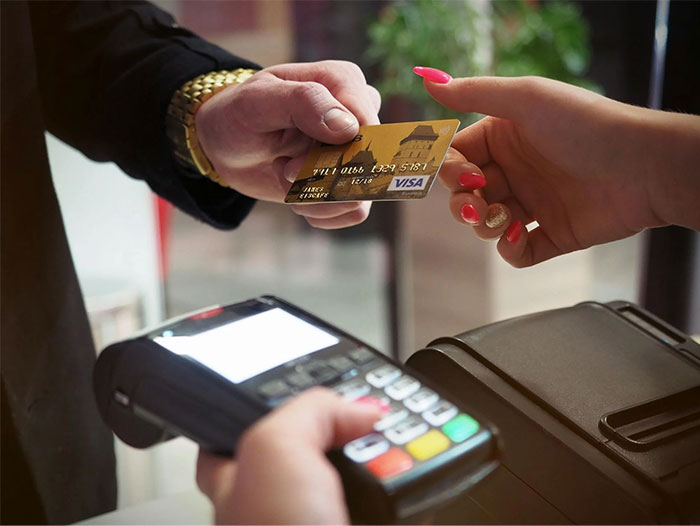
Image credits: pexels (not the actual photo)
But when one man decided that he wouldn’t keep the chain going, he was immediately met with judgment
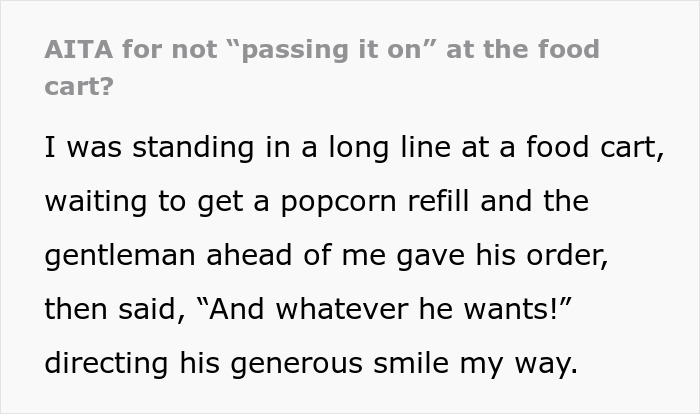
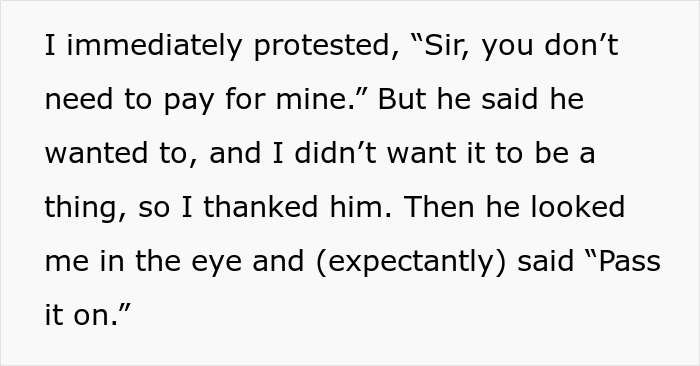
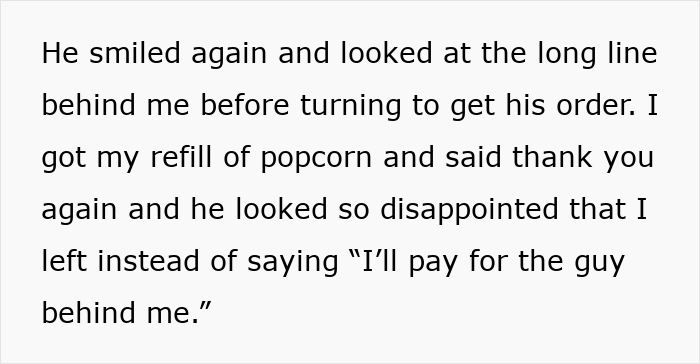

Image credits: pexels (not the actual photo)
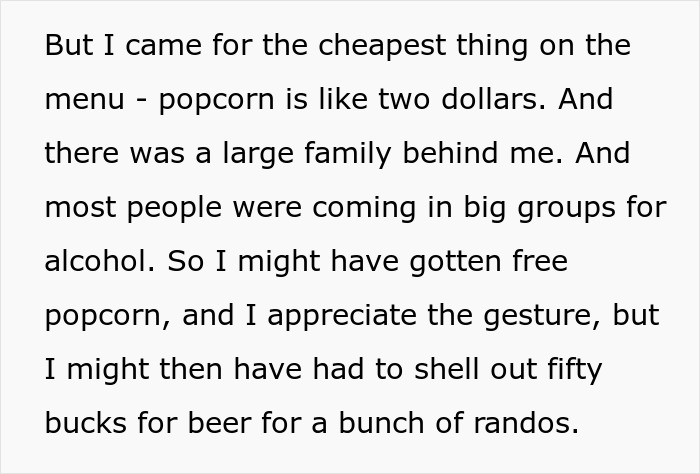
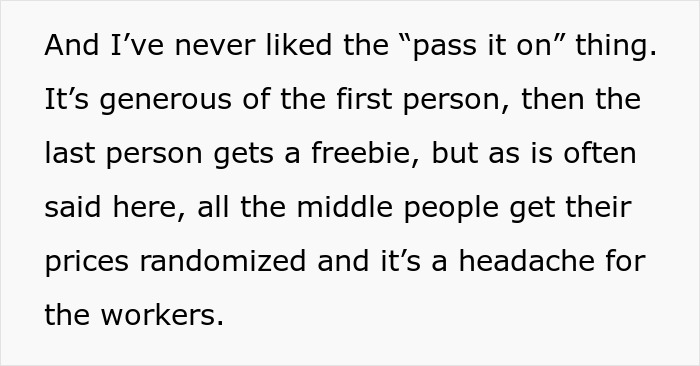
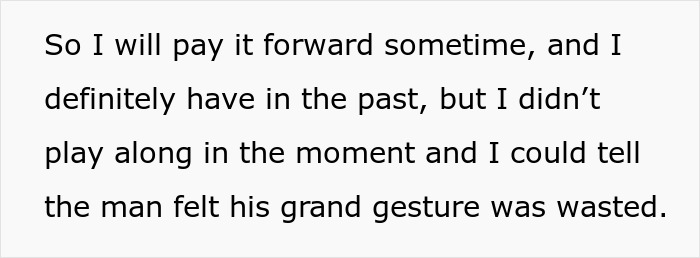

Image credits: Ganbario
“This act felt very performative”

Image credits: freepik (not the actual photo)
To find out more about this situation, we reached out to the Reddit user who shared this story, Ganbario. He was kind enough to have a chat with Bored Panda about whether or not he’s ever participated in these chains before.
“I’ve never been part of a food ‘pay it forward chain’, although it’s not the first time a stranger has paid for my purchase before,” the author shared. “Once, I forgot my wallet, and my kids were crying from hunger, and the lady at the next table said she was done with her pizza and we could finish it. That lady is going to heaven.”
The OP said he’s also been on the receiving end of help in big and small ways throughout his life. “My car was stuck, and a retired trucker helped me get back on the road. I asked, ‘How can I pay you back?’ He laughed and said, ‘Pay it forward! That’s what it’s all about!’ That will stay with me forever.”
Because of that, Ganbario certainly isn’t against showing kindness to strangers. “It ran through my head when the woman in front of me at the grocery store had her credit card declined, and I knew I could give her a little help,” he told Bored Panda. “But this guy at the food cart, this act felt very performative.”
“He put me on the spot and expected me to immediately pay for the person behind me,” he explained. “I didn’t feel like I’d been given a gift so much as an obligation. I shared the story because I was truly unsure at the moment if I had done the right thing – is this a real expectation in our society, like tipping?”
“I felt guilty. I had received a benefit and the man’s disappointment made me feel small and selfish,” the author continued. But thankfully, his worries were assuaged by the replies to his post. “Commenters reassured me that a gift shouldn’t come with strings attached, or it’s no gift at all. Many who participated in chains in the past told me that they felt coerced, and they would rather not have been included.”
“Pay it forward” chains are often nightmares for employees

Image credits: unsplash (not the actual photo)
In theory, the idea of “paying it forward” in a coffee shop or drive-through sounds lovely. You go out of your way to treat someone else, and in return, they might be inspired to pass along that kindness to another stranger. In reality, however, there are a host of issues that can arise from these sorts of “pay it forward” chains.
As the author pointed out, these can be a nightmare for employees to coordinate. And you might end up paying $20 for someone else’s meal, while you only ordered a small black coffee. Unfortunately, some people will take advantage of this by ordering extra desserts or drinks, while others might feel pressure not to order what they had originally intended if it’s too expensive.
Food Republic explains on their site that it may feel generous to “pay it forward” to another customer, but it’s only making the employees’ lives harder. It forces them to deviate from their routine, which can be stressful when there’s a line out the door or cars wrapped around the building. Many workers would actually prefer if customers just end the chain early on.
Starbucks employees told Taste of Home that these kinds of chains are an easy way to cause confusion and get orders mixed up, especially for drive-through lines. At Starbucks in particular, some customers also get annoyed when someone else pays for their order if they had benefits expiring on their app or needed to make the purchase for a promotion.
Plus, if someone is already in line at Starbucks, there’s no question that they can afford the drink that they were about to order. Not to mention the fact that someone has to break the chain eventually. There’s no reason to drag it out if the end result is the same: only one person gets a free order.
It’s often better to just leave a generous tip for the workers instead

Image credits: unsplash (not the actual photo)
So what is a better alternative to keeping these “pay it forward” chains going? Well, many employees would prefer that customers simply give them a generous tip. In the United States, fast food workers earn about $36,749 per year. Meanwhile, the average salary nationwide is $63,795.
Putting a little extra money into the pockets of these hardworking employees is arguably even better than helping out one person who could have afforded their coffee (or popcorn or beer, etc.) already.
And, of course, you can always find creative ways to “pay it forward” in other aspects of your life as well. GreenLight recommends buying the meal of a loved one to brighten their day or leaving a kind note on someone’s windshield. It’s also a great idea to volunteer at a local charity or donate blood. You can help an elderly person with their groceries or household chores or tip a service worker extremely generously.
Showing up to your office with homemade baked goods is sure to put a smile on your colleagues, and mentoring a young person in your life might have a huge impact on their future. If you’ve had great experiences at a local business, remember to leave them a heartfelt review and spread the word. And encourage those around you to perform random acts of kindness as well.
We would love to hear your thoughts on this story in the comments below, pandas. Do you think this man was wrong for ending the “pay it forward” chain? Then, if you’d like to check out another Bored Panda article discussing this topic, look no further than right here!
The vast majority of readers agreed that the man was under no obligation to keep the chain going


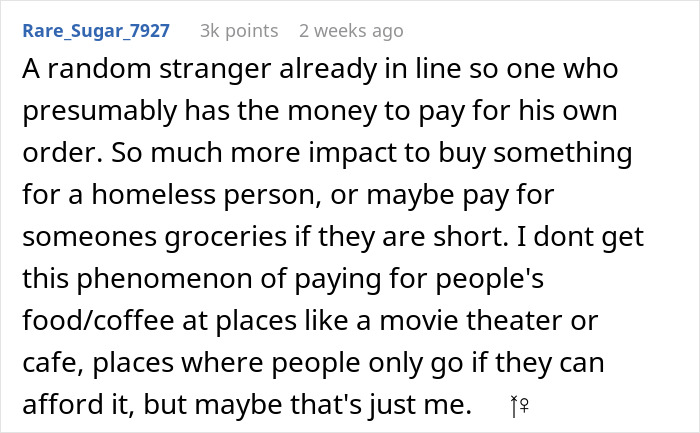
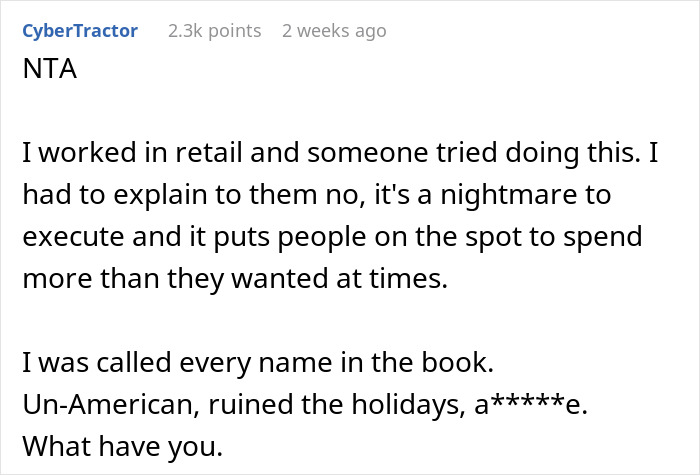
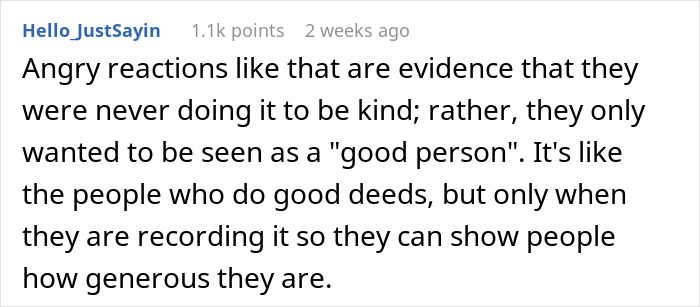
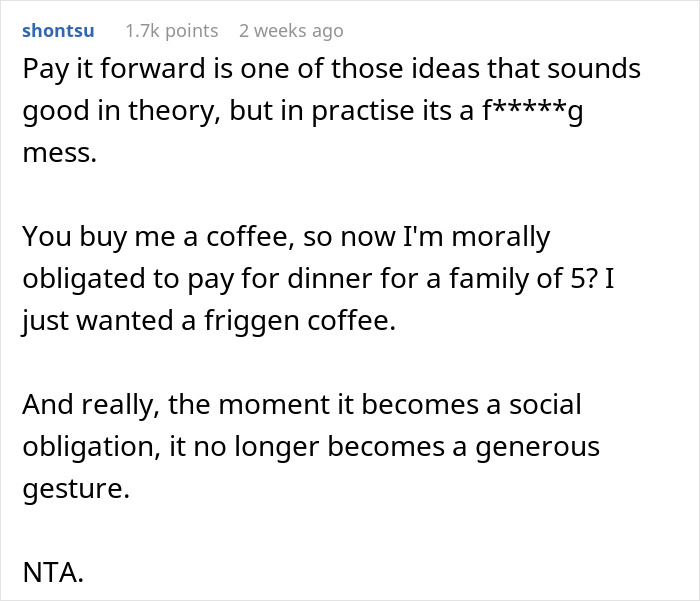
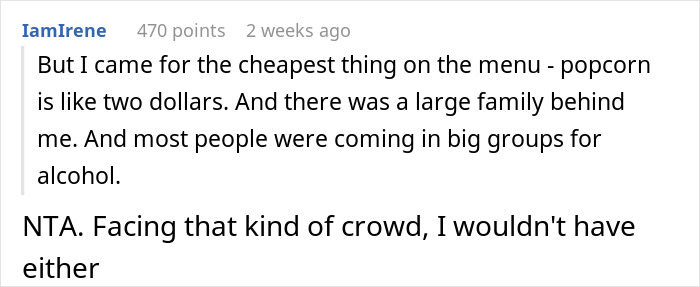

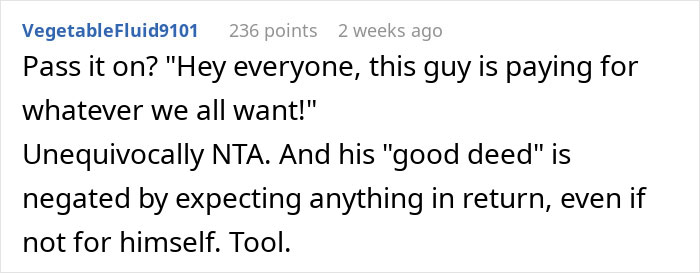
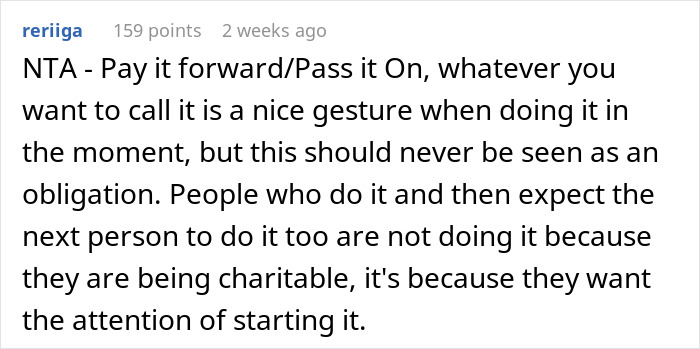
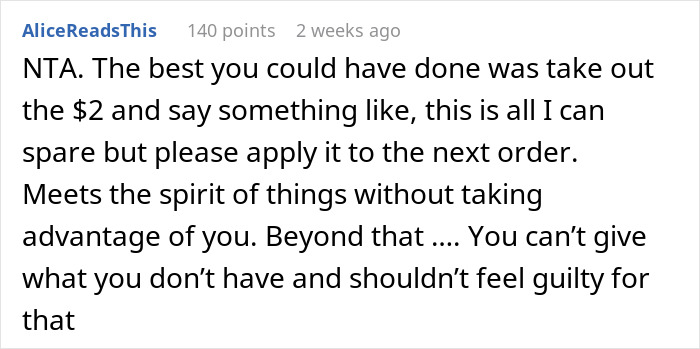
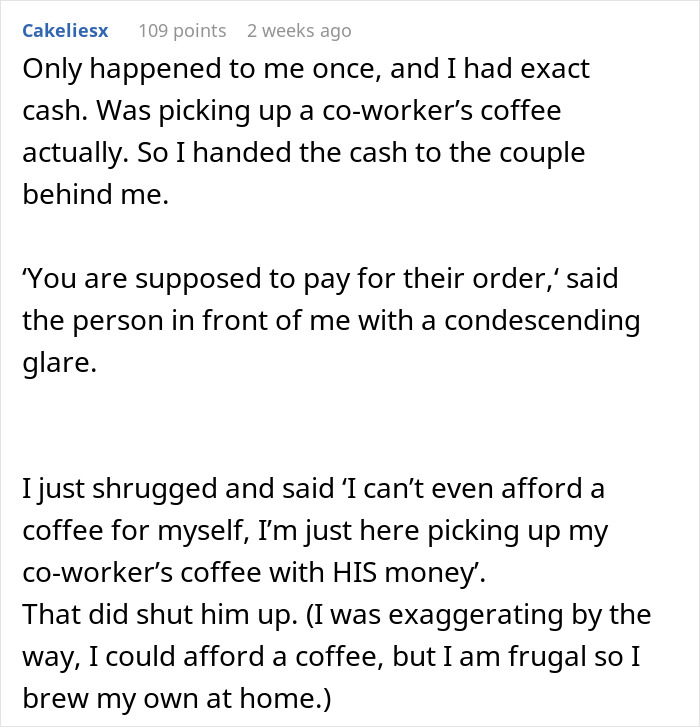
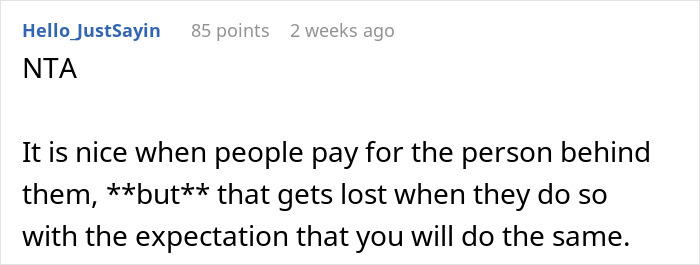

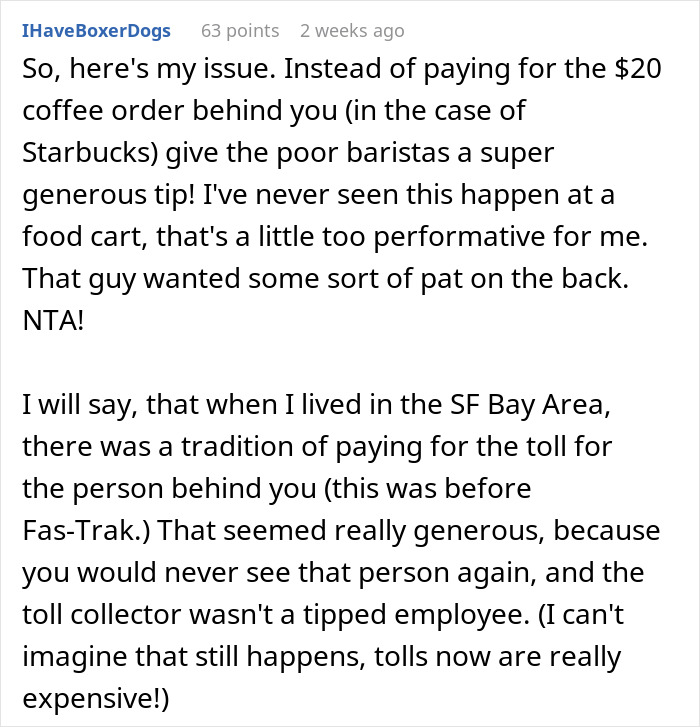
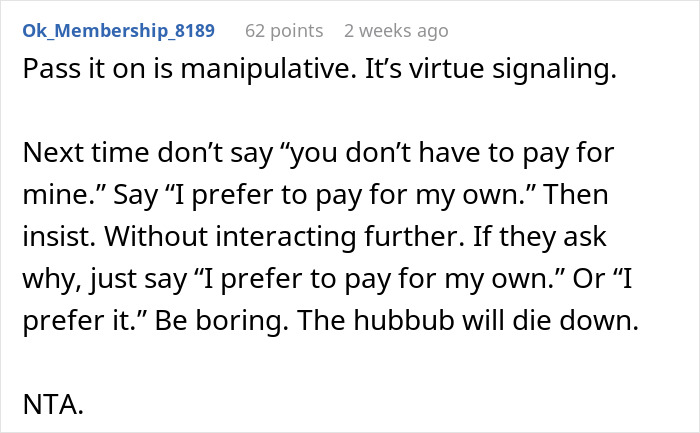

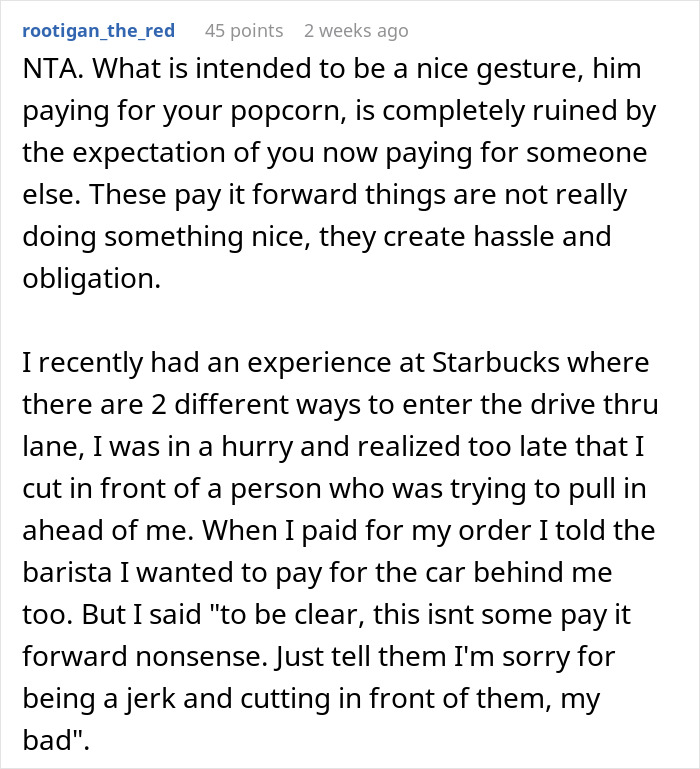
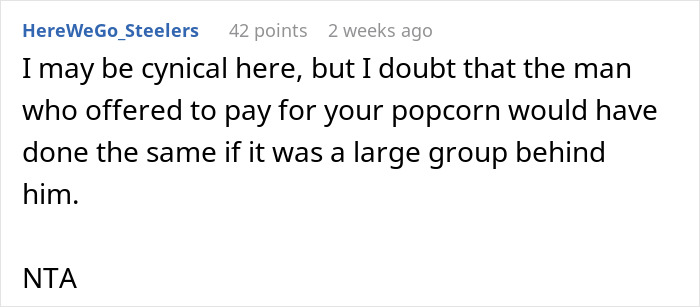
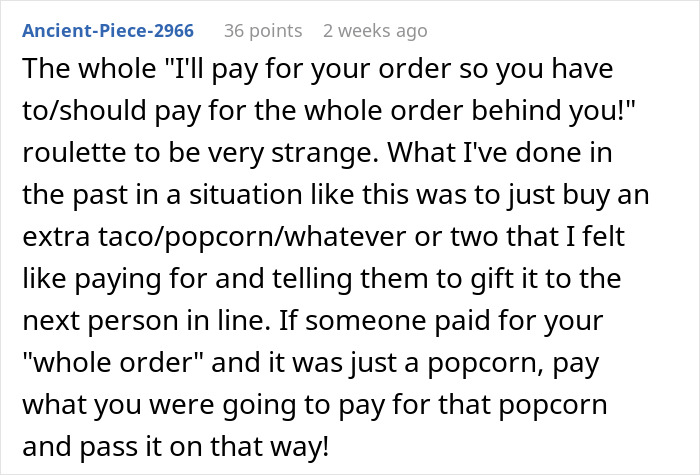
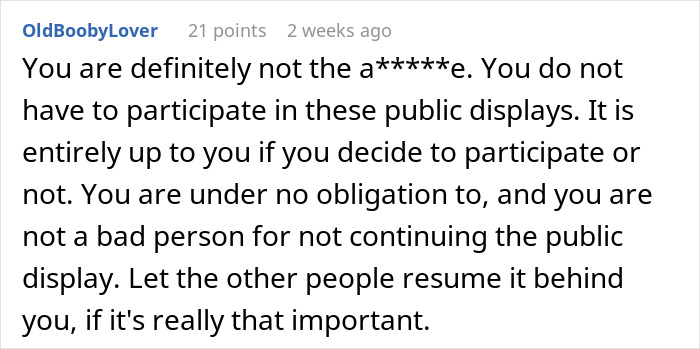




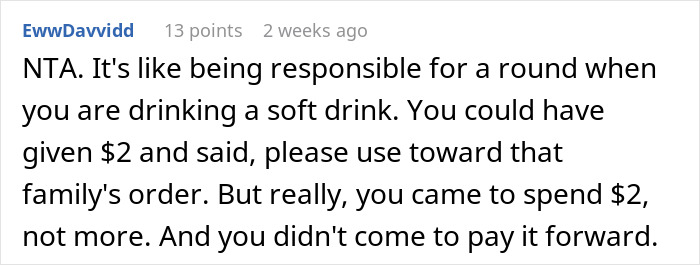
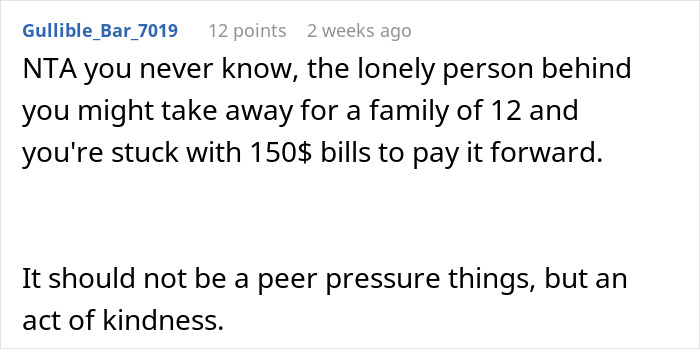


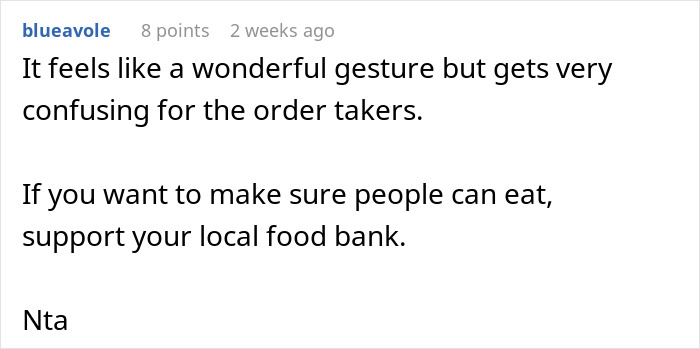
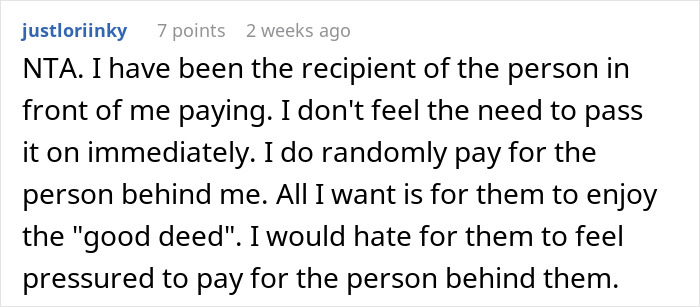




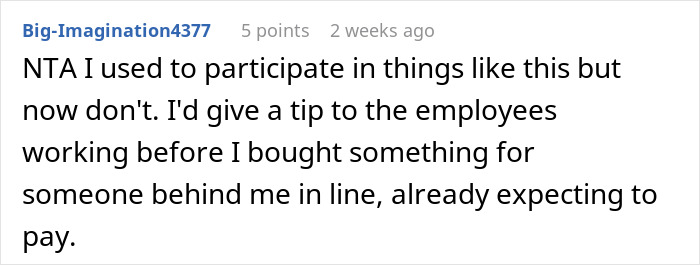
However, a small minority thought that the author was in the wrong








